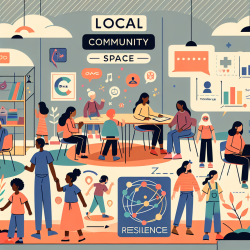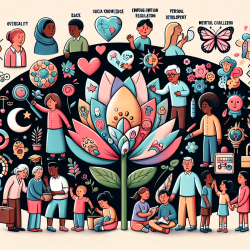Introduction
The COVID-19 pandemic has highlighted the pivotal role of community-based organizations (CBOs) as first responders and agents of change, especially in marginalized communities. The research article "Confident futures: Community-based organizations as first responders and agents of change in the face of the Covid-19 pandemic" provides valuable insights into how these organizations have adapted to meet the needs of their communities. This blog will explore how practitioners, especially those involved in online therapy services like TinyEYE, can leverage these findings to improve outcomes for children.
Key Findings from the Research
The study conducted a comparative analysis of CBOs in New York City and Amsterdam, focusing on their responses to the COVID-19 pandemic. It found that these organizations employed techniques such as connectivity, safe spaces, and creativity to support youth well-being. In New York City, CBOs addressed material survival needs, while in Amsterdam, the focus was on social connections and emotional well-being.
Implementing Research Outcomes in Practice
- Connectivity: Practitioners can foster connectivity by creating virtual communities that allow children to interact with peers and mentors. This can be achieved through online group sessions, forums, and collaborative projects.
- Safe Spaces: Online therapy platforms can create safe spaces by ensuring confidentiality and providing a supportive environment where children feel comfortable expressing themselves.
- Creativity: Incorporating creative activities such as art, music, and storytelling into therapy sessions can enhance engagement and help children process their emotions.
Encouraging Further Research
While the research provides a solid foundation, there is a need for further studies to explore the long-term impact of these interventions. Practitioners are encouraged to document their experiences and share insights to contribute to the growing body of knowledge in this area.
Conclusion
The findings from the "Confident futures" study underscore the importance of community-based approaches in addressing the needs of marginalized youth. By integrating these strategies into online therapy services, practitioners can enhance the effectiveness of their interventions and support better outcomes for children.
To read the original research paper, please follow this link: Confident futures: Community-based organizations as first responders and agents of change in the face of the Covid-19 pandemic.










